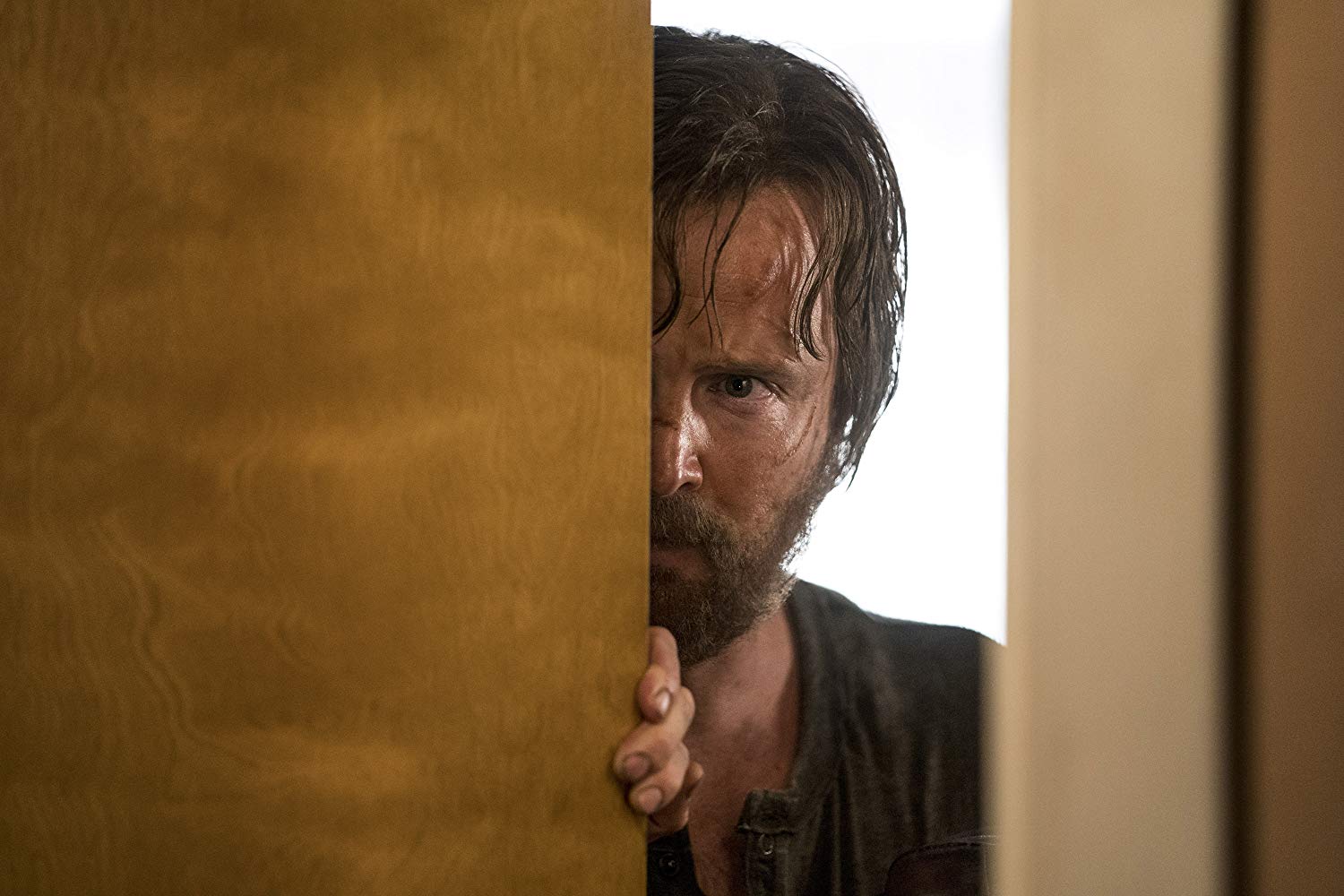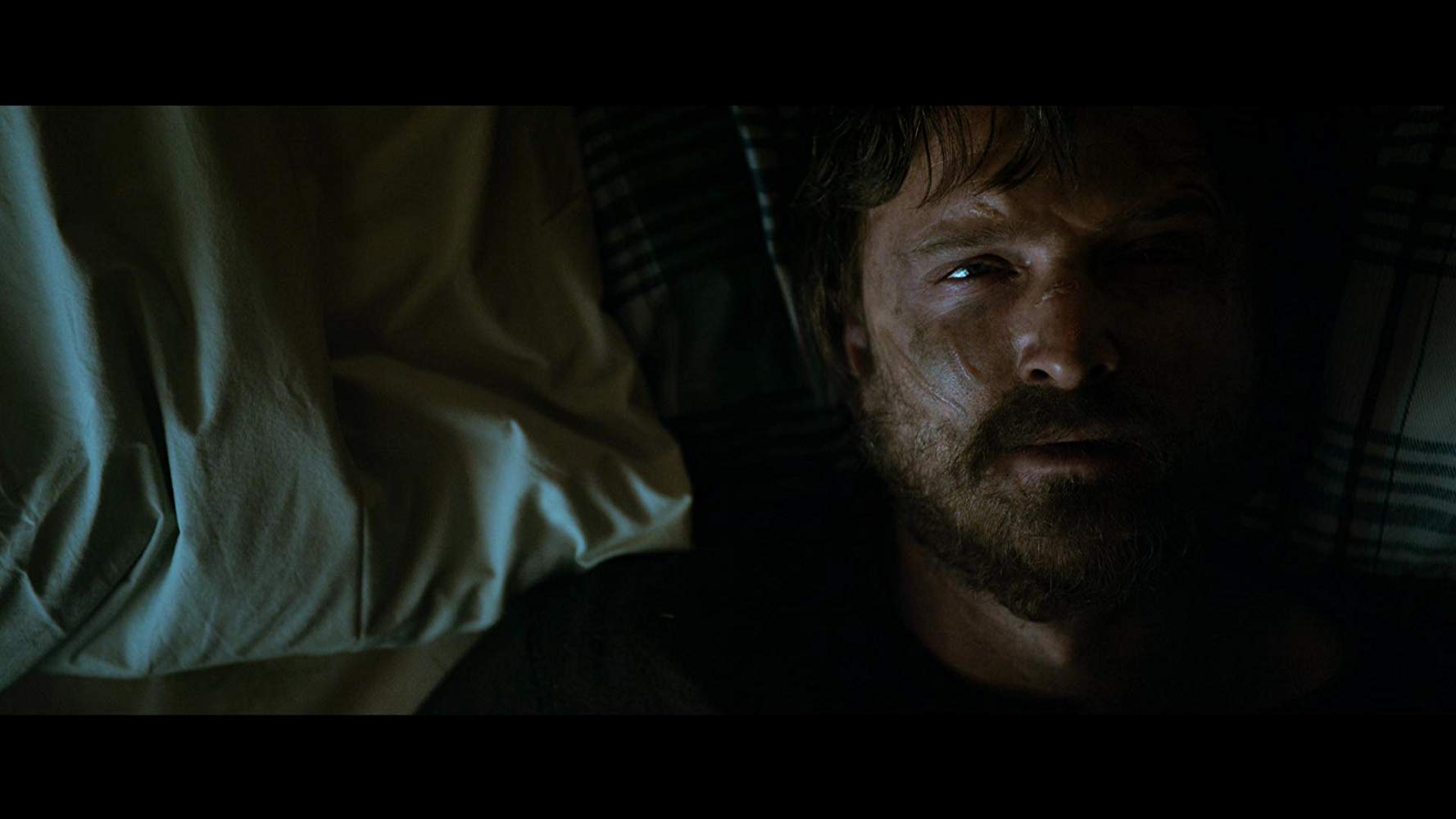We could only guess what lied ahead for Jesse, the tragic character who began his journey as a small-time drug dealer stumbling on rooftops in his underwear to the broken, battered and traumatised man we see at the end. Did he ride off into the sunset (as I genuinely hoped) or did he get pulled over by the cops at the end of the street and get thrown in jail? Out of one hell hole and into another. Or worse yet, did he get sucked right back into the life of crime and revert back to being a drug peddler? Depending on what mood you’re in or who you spoke to, the answer always varied. The ambiguity was both poetic, frustrating and frankly very fitting. A magnificent close to an equally magnificent television series. So, why do we need El Camino? A film that answers all our questions in the most definitive of manners so much so that it morphs the poetry of the finale into something more straightforward. It annoyed me that the film filled in blanks that we were meant to fill in ourselves. But there’s also an absorbing quality to the film — when it’s at its best — that’s simply undeniable. Written and directed by Vince Gilligan (the showrunner of Breaking Bad), El Camino picks up seconds where the series left off… behind the wheel of Jesse’s car. But his journey towards peace isn’t as simple as just driving straight to the Mexican/Canadian border or Alaska. The cops are on the hunt and Jesse must run and keep on running. The running leads to wonderfully staged set-pieces of genuine thrills. Much like with Breaking Bad, Gilligan repeatedly pushes the protagonist’s back against the wall and forces him to claw his way out of sticky situations. Some of these situations involve getting tangled with dubious cops in a mini labyrinth of a rundown apartment. Some of them end in glorious, heart-pounding Mexican standoffs and explosions reminiscent of the most bombastic Breaking Bad episodes. None of it is easy for Jesse. Gilligan has made sure that if Jesse wants to start his life over, he won’t be able to simply drive towards it, he’ll have to run and crawl and plead and beg all while the memories of his past haunt him unforgivingly.
But El Camino isn’t a two-hour-long thrill ride. The edge-of-your-seat set pieces are merely sprinkled in. What El Camino truly is, is a slow character study — the final chapter of the ballad of Jesse Pinkman. If you’re looking for one more “yeah bitch,” you won’t find it here. The naivety has faded away, along with his childlike charm. This is a hardened Jesse, smarter (thanks to the lessons he’s learned from his former mentor), and always on edge. And Aaron Paul delivers a tremendous restrained performance that is wholly different from the character he played in Breaking Bad while still carrying the emotional baggage of the past. Look at the way he reacts both composed and completely sure of himself in the scene where someone has a gun pointed directly to his head. The voice may be Jesse’s, but there’s a bit of Walter White in his words. Notice the way Aaron Paul carries himself during the shootout. Paul’s disappointing post-Breaking Bad career has made us forget how terrific of an actor he is — bloody hell is he terrific! Or maybe he’s just truly in tune with Jesse Pinkman. Gilligan’s character writing is articulate. Jesse is hardened, but when he’s awakened by visions of the past, there’s an immediate vulnerability to him. Our heart sinks. Will his past ever completely let go of him? Or will it continue to latch on to his back like a soul-sucking parasite? At one point, he resigns against the walls of a shower room. When he walks out, he’s stoic again. Thankfully, not everything in his past is unforgiving. Some, like his reconnection with Skinny Peet and Badger, come with moments that are heartwarming and funny.
Unfortunately, the memories of the bleak past aren’t just figments. At times they appear as flashbacks in extended sequences that drive a wedge through the flow of the narrative without adding anything new to the story. In case you missed watching Jesse held captive in a cage and manipulated by the psychopathic and soulless Todd, there’s a little more of that here. If you’ve missed watching some of his intimate interactions with Walter, there’s some of that too. While these sequences are interesting in isolation — some poignant, some uncomfortable (I will never get used to looking into coldness Todd’s eyes and seeing only emptiness) — they don’t add anything thematically fresh to the story. In fact, they feel more like speed bumps in an already slow-burner of a film. It is also during these moments where I found my mind drifting and wondering if we even needed the film in the first place. Yes, it’s well written, well directed and wonderfully acted and there’s no denying Vince Gilligan’s passion for Breaking Bad. But as a whole, El Camino feels like a drawn-out short film or a bonus feature you’d find on the Blu-ray of the series’ 10th anniversary. While I enjoyed it as a fan of Breaking Bad, the fan in me is also crabbed that we got overt answers to a poetic finale without adding anything new or significant. Let’s just hope we don’t get a film titled Holsten’s by David Chase detailing what happened after The Sopranos cut to black. El Camino: A Breaking Bad Movie is currently streaming on Netflix.

